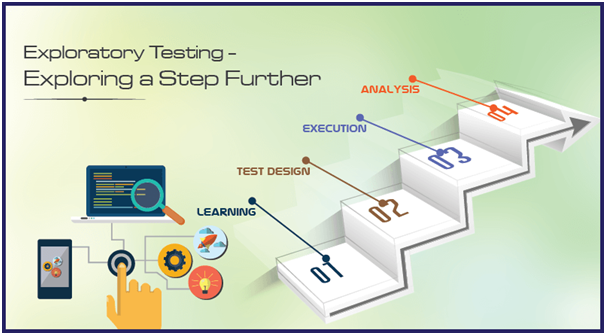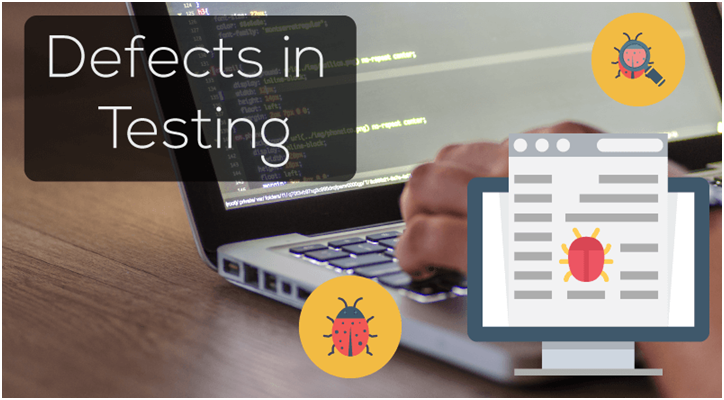When it comes to the success of any software project, one parameter that matters the most is the agility with which the project is executed. At the time of posting new software releases to clients, it is vital to have speedy and highly efficient testing done since errors/discrepancies that go unnoticed can cause a great deal of upheaval in the software implementation. During such events, time plays a critical role and that is where a specialized type of software testing and QA service comes to the rescue and helps find out bugs in the shortest time possible. Software testing is all about adding value, not just finding bugs and hence with a plethora of testing mechanisms available that rule the software industry, the one that fits the bill here, is Exploratory testing – a kind of its own, known for saving the time to a large extent. It focuses on a simultaneous procedure of test case implementation with designing at the same time, with a stringent view to discover, investigate and learn. The entire onus of testing lies in the personal views and judgment of the testers rather than prefixed documentation.
Time being the most critical aspect, software testing, if started early, surely pays off, but at the same time, it does have a set of guidelines, which if taken care of on a timely basis, can work wonders. Exploratory testing is considered the apt choice when it is about finding the most critical defects in a limited period of time. There are no pre-decided test designs or plans documented and the entire dependency of testing lies on a responsible, knowledgeable, and technically sound team of experts, who like an end-user, are able to judge what the possible consequences could be and what could be the most likely situations that the solution might face while encountering these bugs/discrepancies.
Key Facts that Signify Importance of Exploratory Testing in the Era of Software Testing & QA Service
- Emphasizing the importance of its name, this testing style is meant to explore and extract information about the solution and its stability, sturdiness and robustness. In case there are no detailed specifications and there is very limited time, it works the best
- It is a proactive methodology wherein the testers have least planning to do and most of their time is utilized in executing the tests that are prompt, unplanned, and focus on the key goal to be achieved
- There is least formal documentation but at the same time, the testers are sharp and competent enough to execute the tests with equivalent test cases, scenarios, and techniques
- It turns out to be a supervisor to other testing mechanisms that are already in place and are based on the traditional style of testing. As a top layer to the conventional way, Exploratory testing forms an upper layer, finding out bugs in an impromptu manner
- There is minimal preparation time involved with the maximum output of critical bugs and defects identified in the course of testing. There is the interdependency of testing results on each other as there is no formalized procedure and it is based more on the gut feeling of the testers and their approach
- This style of testing utilizes the best of talent and competency from the testers as it totally depends upon the tester’s ability to demonstrate the capability of finding out bugs with their own skills and testing styles
How to Identify a Perfect Exploratory Tester?
Out of the entire testing team that an organization has, there are certain typical characteristics that certain testers will exhibit and that form the crux to identify an apt exploratory tester. Here are a few of them:
- Yearning for Testing: An exploratory tester needs to have the craving for testing because that is what is going to imbibe the real skill of testing void of proper documentation
- Out-of-the-box Thinking: The tester need to have an inquisitive approach towards the projects and should possess an all-round approach towards the software project, so as to analyze it from all ways.
- Observation & Technical Skills: Since time is the major constraint in this type of testing, it is a must that the tester must have the capability to observe and grasp the testing environment swiftly and also possess detailed technological skills, to act fast and perfect.
- Communication Skills: Since there is least of documentation, the only medium through which the tester can convey the found defect / bug to the rectifier team is through mere communication and hence the tester needs to have good communication proficiency.
How dissimilar is Exploratory Testing from Scripted Testing?
Scripted testing talks about a predetermined approach to testing in which there is full planned documentation, well defined test cases and test design, which is followed step by step and it is more process defined than person dependent. The process is so well defined that there are hardly any hurdles owing to person power whereas in Exploratory testing, the entire heap of responsibility lies on the shoulders of the tester since it is the tester’s perception with which the testing is to be carried out.
Scripted testing deals with the entire set of functionalities of a software system in a step wise manner, i.e. one functionality comes after the other and the entire gamut of testing is conducted this way, whereas the exploratory method handles the entire system as a whole. The sequence with which the testing is to be done is not fixed and it is up to the tester’s intelligence, experience and verdict that the testing takes place. And hence it is very important to identify the correct resource as an exploratory tester.
Scripted testing is a complete direction from requirements and hence test documentation is determined well in advance along with confirmation from the end-users. Hence it emphasizes a lot on predictions and decisions. There is significant control over all parameters and hence there is less need for risk management. Exploratory testing is more towards exploring facts and is more investigative, spontaneous, and adaptable in nature. Hence, there are chances of risks coming up in near future and possibly, this type of testing may not be able to be the only one to be taken up for full-on control. It would ideally, always be better to have an alternate way of testing, which is more standardized and predetermined.
SPEC QA, as a Software Testing Services Company in India, offers independent QA and Testing Services across the complete software release lifecycle. As an ISO 9001:2008 company we guarantee process driven approach in all our quality assurance practices and software testing services.
Our Software Testing & QA Services make certain an accurate blend of Manual and Automated Testing and provide support through the Testing Life Cycle. As a Third Party Software Testing Company in India, we possess skilled resources in Automated Testing tools like Selendroid, Selenium, Appium, Robotium, Quick Time Pro etc. and Performance tools like JMeter, hp Loadrunner, BlazeMeter etc. which help in simulating scenarios and performing continuous routine mundane tests.
With a stringent focus on quality and processes, we have been implementing several web app testing services in a multitude of technologies. Request for a Free POC to test-drive our services.






